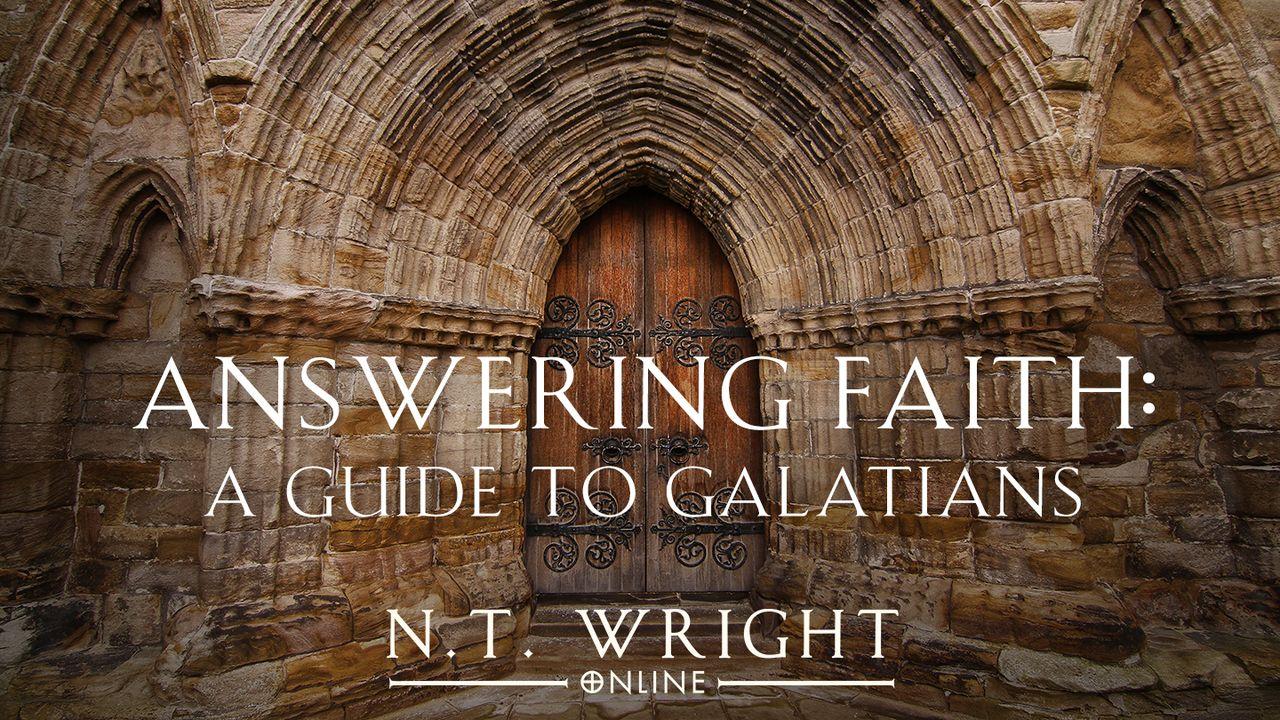Answering Faith: A Guide to Galatians With N.t. WrightPrimjer

When reading this well-rehearsed passage, it is important that we continue to think of spirit and flesh in the way that Paul has been using them. Too often, we abstract these terms into Platonic ideas of one’s physical nature being opposed to one’s religious nature, or else make the further analogy to ‘law’ in the sense of arbitrary moral codes. Not so for Paul. He is here using flesh in the very specific sense of circumcision, standing in for adherence to the Law of Torah, a code which bestowed social belonging status. Spirit is likewise the specific indwelling activity of the life of God in the people of the Messiah, individually and as a community.
The struggle between flesh and spirit mirrors the allegorical reading of Sarah and Hagar from chapter 4. It is not merely an individual struggle within the psyche between what is ‘natural’ and what is ‘unnatural’. It is a choice between returning to enslavement or continuing ahead in the new life of the spirit bestowed on members of the in-Messiah community.
It is fruitful to examine the particular examples of ‘works of the flesh’ and ‘fruit of the spirit’. He highlights specific and urgent challenges targeted at his readers. If he were only laying out a general ethical framework, this would indeed be out of place after his sustained polemic against adherence to an exclusionary moral code. (Not to mention it would be far from exhaustive, forgetting to mention such central tenants as humility and hospitality.) But Paul assumes that his readers are indeed capable of the fruit of the spirit. Just like the ‘work’, these come from deep within the human heart.
The works of flesh highlighted are those of communal strife. Many of the words, in fact, verge on the edge of redundancy, near-synonyms in Greek. The fruit, on the other hand, points to virtues, but not in the Platonic sense. These are virtues for the benefit of the community, requiring a team effort. Again, it is far from an exhaustive list, but rather the specific actions the Galatian community needed to be reminded to display, lest their attackers have something to hold up against them. As verse 26 makes clear, the point is always the unity of the Messiah community.
Reflection:
Prof. Wright says that the fruit of the spirit requires a team effort. What structures in your life enable this team effort or make it more challenging?
What is the relationship between authenticity, flesh, spirit, and effort? How does the idea that the fruit of the spirit shouldn’t overlap with ‘works’ make it harder to embody those fruits?
Sveto pismo
O planu čitanja

One of the earliest documents of the Christian church, Galatians, is written to believers struggling to understand the social dynamics of their new life in Christ. Galatians powerfully explores how Jesus, as Israel’s Messiah, rescues humanity, inviting everyone into a family marked by personal faith that answers Jesus’ perfect faithfulness. Scholar N.T. Wright guides you through the climactic passages of Galatians, providing insight into Paul’s argument for Gentile inclusion.
More









